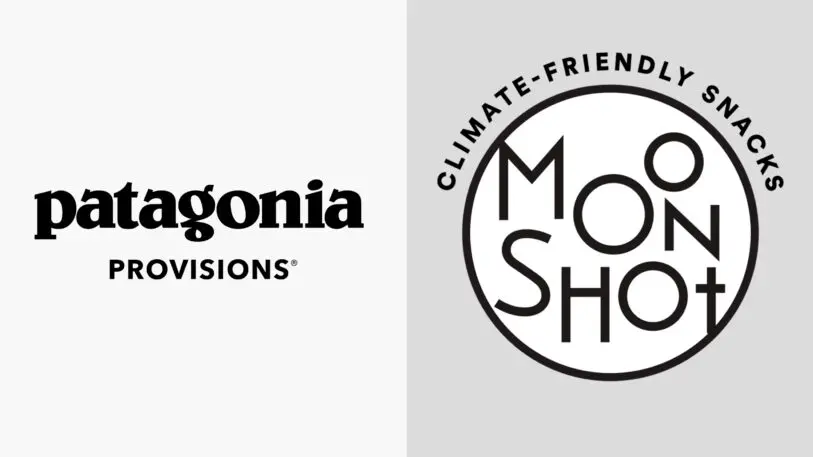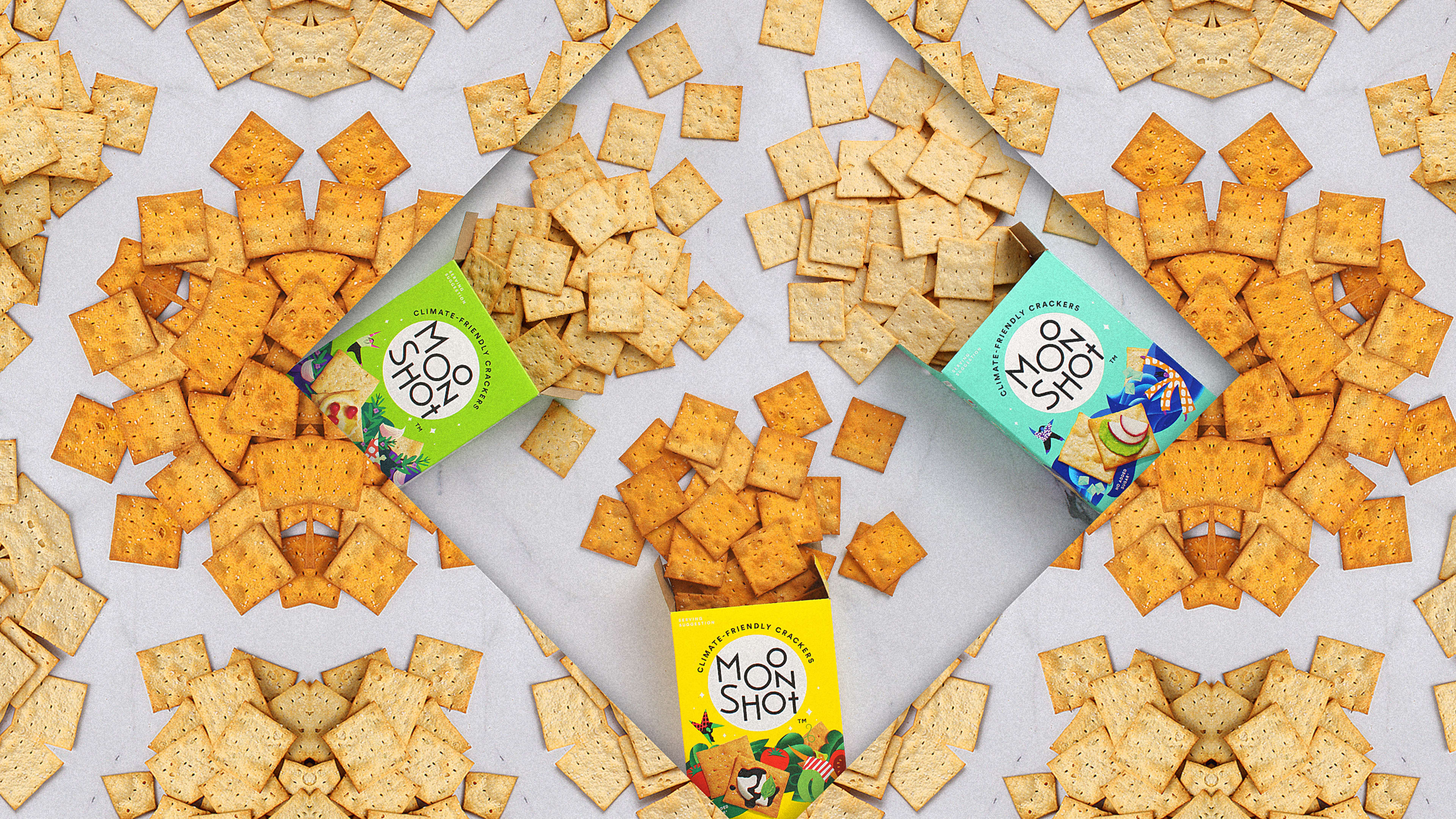When Patagonia made its first acquisition in more than two decades, it didn’t invest in an outdoor apparel brand. Instead, the company bought Moonshot, a startup that makes snacks with a low-carbon footprint.
It’s the latest step for Patagonia Provisions, the food and beverage division of the company. “As you know, Patagonia doesn’t always follow conventional thinking,” says Paul Lightfoot, general manager of Patagonia Provisions. “We are, at heart, still a gear and apparel company. But the mission of the company is really simple and clear—to save our own planet. And [founder] Yvon Chouinard and the rest of the leadership team and I believe that if that’s our mission, food could and perhaps should be the most important lever that we can pull toward fulfilling that mission.”
Patagonia has experimented with new ingredients like kernza, a perennial grain with long roots that can help build soil health and could help capture carbon from the air (and then can be made into beer or pasta). Not every experiment goes smoothly—the company wanted to use breadfruit as an ingredient because of the environmental and social benefits, but discontinued a line of breadfruit crackers, for now, because of quality issues. But the team is continually searching for new ways to avoid the current food system’s negative impacts.

Moonshot, the new acquisition, launched two years ago with climate change in mind. The company works with wheat farmers in Washington State who grow organically—avoiding the carbon footprint of petroleum-based fertilizer and chemical pesticides—and use “regenerative” farming practices like planting cover crops, reducing tillage, and rotating crops, which can build up healthy microbes in the soil and potentially sequester more carbon. (While the climate impacts of regenerative farming still aren’t fully proven, the techniques have multiple other benefits, including protecting biodiversity and preventing water pollution.) The wheat goes to a mill a couple of miles away to avoid long-distance shipping, and the resulting flour goes to a factory that runs on renewable energy.
The startup’s crackers will join 28 other products—like smoked mackerel, dried mango, and kelp salsa—that Patagonia Provisions now sells itself and in stores like Whole Foods. The division aims to quickly grow, Lightfoot says. “We think that the food business should eventually rival the apparel business,” he says. “And we think that anywhere there are parts of the food system that are extractive and destructive, we have a role to play in creating a counterbalancing set of food products that are regenerative. . . . We don’t seek growth for its own sake. But we recognize that to have an impact, we have to scale. So this probably will be a part of the company that grows a lot over the next 5 to 10 years.”
The company wants to help push the rest of the industry to change. Part of that means collaborating with other brands. “We actually give away our learnings and our research to other food companies that demonstrate an authentic interest to convert to regenerative as well,” says Lightfoot. Patagonia shares research on kernza with General Mills, for example.
It also wants to demonstrate that a market exists for responsibly produced food. “We think there’s no better way to serve a wake-up call to the food industry than to watch their market share dwindle toward food that’s better for the planet,” he says.
“There’s no doubt in my mind that in 2023, there are a lot of consumers out there who didn’t used to understand but now clearly understand the role of the food system in the climate crisis,” Lightfoot says. “And who want to make choices that make them feel like they’ve got a positive role in fighting the climate crisis. That’s going to create, I think, one of the greatest market demand opportunities for food companies. So we’re doing the right thing for the right reasons here at Patagonia in food, but we don’t think it’s gonna be some massive sacrifice.”
Recognize your brand’s excellence by applying to this year’s Brands That Matter Awards before the early-rate deadline, May 3.
